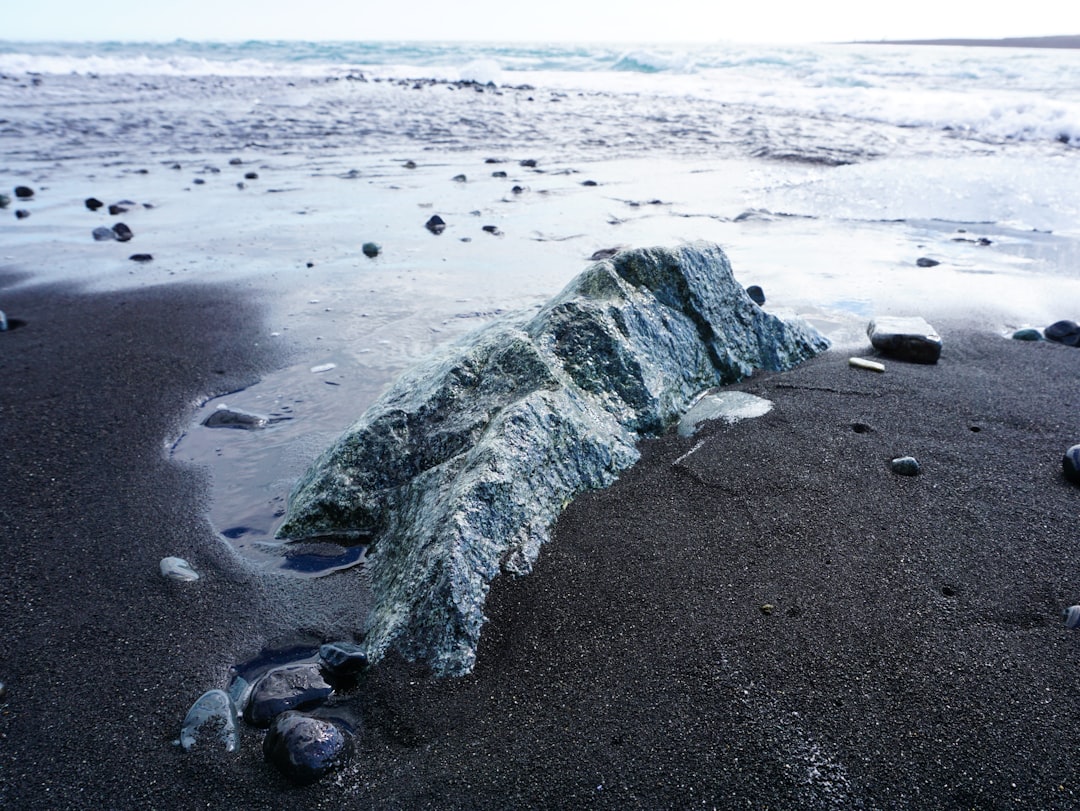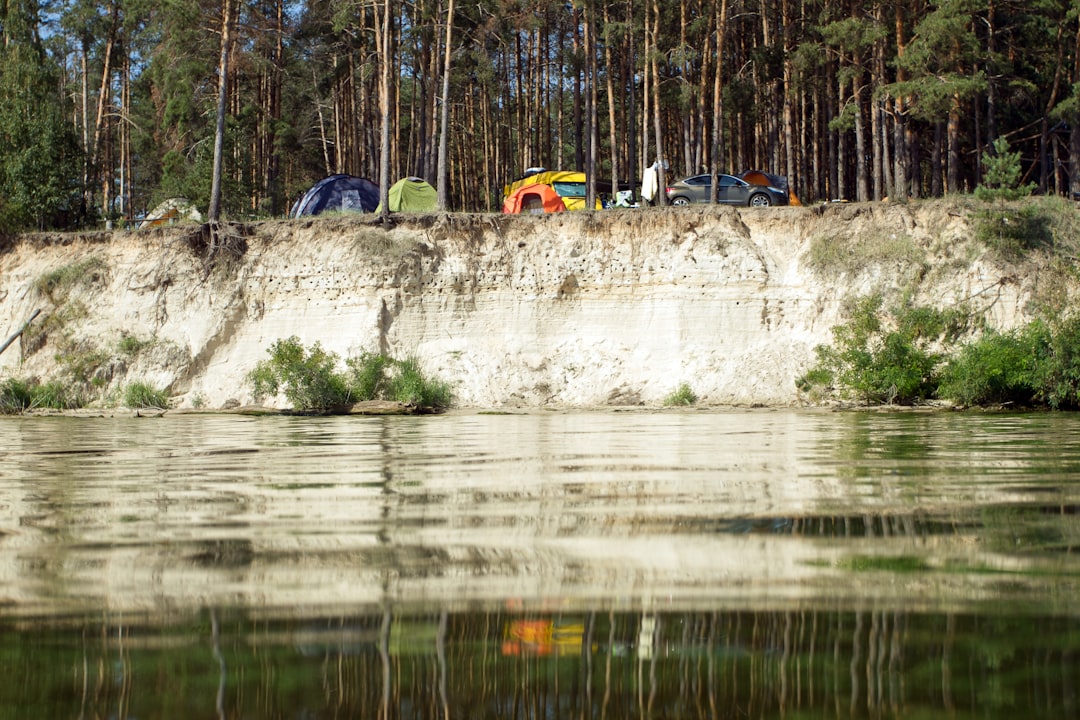Nestled within the vast expanses of the Australian wilderness lies a treasure trove of natural wonders awaiting exploration. Embracing responsible travel practices in the Australian wilderness not only unlocks the door to unforgettable adventures but also fosters a deep sense of stewardship towards the environment. From the rugged Outback to the pristine rainforests, each step taken with mindfulness and care contributes to the preservation of these unique landscapes. Join us on a journey where conservation meets exploration, and where every footprint echoes a commitment to sustainability and respect for the wilderness.
Understanding Responsible Travel Practices
Responsible travel practices in the Australian wilderness encompass a combination of conscious decisions and actions aimed at preserving the natural environment and promoting sustainability. By adopting responsible travel practices, visitors can minimize their ecological footprint and contribute positively to the conservation of the wilderness areas they explore.
Importance of Responsible Travel
Responsible travel practices in Australian wilderness are crucial for safeguarding the ecological balance and biodiversity of these pristine environments. By following sustainable travel guidelines, visitors can help protect sensitive ecosystems, reduce pollution, and support local communities that depend on the wilderness for their livelihoods.
Benefits for the Environment and Future Generations
-
Preserves the natural beauty and integrity of the Australian wilderness
-
Minimizes negative impacts on wildlife habitats and ecosystems
-
Contributes to the overall sustainability and resilience of the environment
Effective Implementation of Responsible Travel Practices
Achieving responsible travel in the Australian wilderness involves a combination of mindful decisions and practical actions:
-
Planning Ahead: Research the environmental policies and guidelines of your destination.
-
Choosing Sustainable Accommodation: Opt for eco-friendly lodging options that prioritize sustainability.
-
Respecting Wildlife: Observe wildlife from a safe distance and avoid disrupting their natural behaviors.
-
Reducing Waste: Pack reusable items, minimize single-use plastics, and properly dispose of waste.
-
Supporting Local Communities: Engage with Indigenous cultures respectfully and support local businesses.
By integrating these practices into your travel routines, you can contribute to the conservation and protection of the Australian wilderness for future generations to enjoy.
To learn more about Leave No Trace principles and responsible outdoor ethics, visit Leave No Trace Australia.
Choosing Eco-Friendly Accommodation
When practicing responsible travel in the Australian wilderness, the choice of accommodation plays a significant role in minimizing your environmental impact and supporting sustainable tourism initiatives. By opting for eco-friendly lodging options, you can immerse yourself in nature while contributing to the preservation of the wilderness.
Criteria for Selecting Eco-Friendly Accommodation
When selecting eco-friendly accommodation in the Australian wilderness, consider the following criteria:
-
Energy Efficiency: Look for accommodations that utilize renewable energy sources such as solar power.
-
Water Conservation: Choose lodgings that implement water-saving practices and technologies.
-
Waste Management: Prioritize accommodations that promote recycling and minimize waste generation.
-
Local Sourcing: Opt for accommodations that source their food and amenities locally to support the community.
-
Certifications: Seek accommodations with eco-certifications such as EarthCheck or Green Key for verified sustainability practices.
Eco-Friendly Accommodation Options in Australia
-
Longitude 131° (Uluru-Kata Tjuta National Park): Offers luxury eco-camping experiences with a commitment to sustainability and Indigenous cultural immersion.
-
Thala Beach Nature Reserve (Queensland): A eco-certified resort nestled in the rainforest with a focus on wildlife conservation and environmental stewardship.
-
Paperbark Camp (Jervis Bay, New South Wales): Combines luxury tented accommodation with sustainable practices like rainwater harvesting and solar power usage.
Contribution to Responsible Travel Practices
By choosing eco-friendly accommodation in the Australian wilderness, travelers actively support sustainable tourism practices and conservation efforts. These lodging options operate in harmony with the natural surroundings, allowing visitors to experience the beauty of the wilderness while minimizing their environmental footprint.
To explore more eco-accommodation options in Australia, visit the Sustainable Tourism website of Ecotourism Australia.
Respecting Wildlife in the Australian Wilderness
Responsible travel practices in the Australian wilderness extend to how visitors interact with the native wildlife, ensuring minimal disturbance and maintaining the natural balance of the ecosystem. Respecting wildlife habitats and observing ethical guidelines are essential components of sustainable travel in these pristine environments.
Guidelines for Interacting with Wildlife Responsibly
When encountering wildlife in the Australian wilderness, adhere to the following guidelines to protect both the animals and their habitats:
-
Maintain a Safe Distance: Observe wildlife from afar to avoid causing stress or altering their behavior.
-
Avoid Feeding Wildlife: Human food can be harmful to animals and disrupt their natural diets.
-
Respect Habitat Boundaries: Stay on designated paths and avoid entering restricted areas to protect wildlife habitats.
-
Do Not Disturb Nesting Sites: Be mindful of nesting seasons and breeding grounds to avoid disrupting breeding activities.
Impact of Human Interference on Wildlife
Uncontrolled human interaction with wildlife can have detrimental effects on their well-being and the delicate balance of the ecosystem. By respecting wildlife and their habitats, visitors can help safeguard the biodiversity and natural processes that make the Australian wilderness unique.
Importance of Maintaining a Safe Distance
Maintaining a safe distance from wildlife not only protects the animals but also ensures the safety of visitors. Approaching wild animals too closely can pose risks to both parties and disturb the natural behaviors essential for their survival.
To learn more about responsible wildlife viewing practices, visit the Parks Australia website's section on Wildlife Watching Ethics.
Supporting Local Indigenous Communities in the Australian Wilderness
Responsible travel practices in the Australian wilderness extend beyond ecological considerations to include the cultural significance of the land to Indigenous communities. By engaging with and supporting local Indigenous groups, travelers can enrich their experiences while contributing to the preservation of traditional heritage and knowledge.
Understanding Indigenous Cultural Significance
The Australian wilderness holds deep cultural significance for Indigenous communities, who have maintained close connections to the land for thousands of years. By learning about and respecting Indigenous traditions, visitors can gain a deeper appreciation for the spiritual and historical importance of the wilderness.
Ways to Support and Engage with Indigenous Communities
When exploring the Australian wilderness, consider the following ways to support and engage with local Indigenous communities:
-
Participate in Cultural Experiences: Attend Indigenous-led tours, performances, or workshops to learn about traditional practices.
-
Purchase Authentic Indigenous Arts and Crafts: Support local artisans and businesses by purchasing authentic Indigenous artwork and products.
-
Respect Sacred Sites and Traditions: Observe cultural protocols, such as seeking permission before entering sacred sites or using traditional knowledge.
Examples of Responsible Tourism Initiatives
Numerous responsible tourism initiatives aim to support Indigenous communities in Australia and promote cultural sustainability:
-
Cultural Tours: Participate in cultural tours led by Indigenous guides to learn about the land from a unique perspective.
-
Indigenous-owned Accommodations: Stay at Indigenous-owned accommodations that reinvest in community development and preservation.
-
Artisan Markets and Festivals: Attend artisan markets and cultural festivals that showcase Indigenous arts, crafts, and performances.
Promoting Cultural Exchange and Respect
By supporting local Indigenous communities in the Australian wilderness, travelers can foster meaningful cultural exchanges, promote awareness, and contribute to the empowerment and preservation of Indigenous cultures.
To explore Indigenous tourism experiences in Australia, visit the Tourism Australia website's section on Indigenous Experiences.
Transportation Options for Sustainable Travel in the Australian Wilderness
When embarking on adventures in the vast Australian wilderness, choosing sustainable transportation options is key to reducing your environmental impact and preserving the natural beauty of the landscapes. By opting for eco-friendly modes of transportation, travelers can enjoy their journeys while minimizing carbon emissions and promoting responsible travel practices.
Comparison of Eco-Friendly Transportation Modes
Consider the following eco-friendly transportation options for traveling in the Australian wilderness:
-
Public Transportation: Utilize public buses, trains, or ferries to access remote areas and reduce individual vehicle emissions.
-
Carpooling: Share rides with fellow travelers to decrease the number of vehicles on the road and lower carbon footprints.
-
Electric Vehicles: Rent or use electric cars for self-driving journeys to reduce dependency on fossil fuels.
-
Bicycle and Walking: Explore local areas on foot or by bike to immerse yourself in nature and minimize pollution.
Tips for Reducing Carbon Footprint
Travelers can take proactive steps to reduce their carbon footprint while exploring the Australian wilderness:
-
Plan Efficient Routes: Opt for direct routes and combine activities to minimize driving distances.
-
Drive Responsibly: Adhere to speed limits, conserve fuel, and practice eco-friendly driving habits.
-
Offset Carbon Emissions: Consider offsetting carbon emissions through reputable carbon offset programs.
Promoting Public Transportation and Carpooling
By advocating for and utilizing public transportation options and carpooling services, travelers can collectively contribute to reducing greenhouse gas emissions and promoting sustainable travel practices in the Australian wilderness.
To learn more about sustainable transportation initiatives in Australia, visit the Department of Infrastructure, Transport, Regional Development and Communications' website section on Sustainable Transport.
Packaging and Waste Management in the Australian Wilderness
Effective waste management and responsible packaging practices are essential components of sustainable travel in the Australian wilderness. By adopting eco-friendly packing habits and minimizing waste generation during outdoor adventures, travelers can help preserve the natural beauty of the environment and protect wildlife habitats from pollution.
Eco-Friendly Packing Tips for Outdoor Adventures
When preparing for wilderness trips, consider the following eco-friendly packing tips to reduce your environmental footprint:
-
Use Reusable Containers and Utensils: Pack meals and snacks in reusable containers and opt for bamboo or stainless steel utensils.
-
Carry a Refillable Water Bottle: Stay hydrated with a durable, refillable water bottle to reduce single-use plastic waste.
-
Choose Biodegradable Toiletries: Select biodegradable soaps, shampoos, and sunscreen to minimize water pollution in natural water sources.
-
Pack Lightly and Smartly: Bring only the essentials to minimize waste and streamline your packing process.
Strategies for Minimizing Waste Generation
Implement the following strategies to minimize waste generation and promote responsible waste management during wilderness adventures:
-
Practice Leave No Trace Principles: Pack out all waste, including food scraps and trash, to leave the environment as you found it.
-
Separate and Recycle: Sort recyclable items from general waste and dispose of them properly in designated recycling bins.
-
Avoid Single-Use Plastics: Choose eco-friendly alternatives to single-use plastics such as reusable bags and containers.
-
Dispose of Hazardous Waste Responsibly: Properly dispose of batteries, electronics, and other hazardous materials at designated collection points.
Importance of Proper Waste Disposal
By adhering to responsible waste management practices and sustainable packaging options, travelers can contribute to maintaining the pristine wilderness of Australia and protect the natural ecosystems for future generations to enjoy.
To explore more waste reduction tips and eco-friendly packaging options, visit the website of Sustainable Travel International.
Educational Resources for Responsible Travel Practices
Accessing educational resources on responsible travel practices is crucial for individuals seeking to make informed decisions and minimize their impact on the Australian wilderness. By learning from reputable sources, travelers can enhance their understanding of sustainability principles and contribute to the conservation of natural environments.
Recommended Educational Materials
Explore the following educational resources to deepen your knowledge of responsible travel practices in the Australian wilderness:
-
Books: Read insightful books on sustainable tourism, conservation, and eco-friendly travel practices.
-
Websites: Visit reputable websites and blogs focusing on responsible travel, environmental protection, and wildlife conservation.
-
Online Courses: Enroll in online courses or webinars that cover topics such as eco-tourism, sustainable development, and biodiversity conservation.
Promoting Environmental Awareness
Education plays a pivotal role in raising awareness about environmental issues and inspiring positive change in travel behaviors. By engaging with educational resources on responsible travel practices, individuals can better appreciate the importance of conservation and make ethical decisions when exploring the Australian wilderness.
Role of Education in Sustainable Tourism
Education empowers travelers to become advocates for sustainable tourism and champions of environmental stewardship. By sharing knowledge and promoting educational initiatives, we can collectively work towards preserving the natural beauty and ecological diversity of the Australian wilderness for future generations.
To access a wide range of educational resources on sustainable tourism and responsible travel practices, explore the offerings of The International Ecotourism Society.
Community Engagement and Advocacy for Responsible Travel Practices
Engaging with local communities and participating in advocacy initiatives are essential steps towards promoting responsible travel practices in the Australian wilderness. By actively supporting conservation efforts and community-driven projects, travelers can contribute to the preservation of natural environments and the well-being of Indigenous communities.
Joining Environmental and Conservation Groups
Become involved in local environmental groups and conservation organizations dedicated to protecting the Australian wilderness:
-
Participate in Clean-Up Campaigns: Volunteer for community clean-up events to remove litter and debris from natural areas.
-
Support Conservation Projects: Contribute financially or through volunteer work to conservation projects aimed at preserving wildlife habitats.
-
Attend Awareness Events: Join educational workshops, seminars, and events focused on environmental conservation and responsible travel.
Advocating for Sustainable Policies
Advocacy plays a crucial role in influencing policies and regulations that impact the conservation and sustainable development of the Australian wilderness:
-
Supporting Wildlife Protection Laws: Advocate for stronger protections for native wildlife and endangered species.
-
Promoting Sustainable Tourism Practices: Encourage tour operators and accommodation providers to adopt eco-friendly policies and practices.
-
Campaigning for Responsible Waste Management: Advocate for improved waste management systems in wilderness areas to reduce pollution and littering.
Empowering Communities and Strengthening Partnerships
By engaging with local communities and supporting advocacy efforts, travelers can empower Indigenous groups, conservationists, and environmental advocates to work together towards a shared goal of protecting the Australian wilderness for future generations.
For opportunities to engage in community initiatives and advocacy programs, explore the initiatives led by WWF Australia.
Conclusion and Call to Action for Responsible Travel Practices in the Australian Wilderness
In conclusion, practicing responsible travel in the Australian wilderness is not just a choice but a commitment to preserving the natural beauty, ecological balance, and cultural heritage of these pristine landscapes. By adopting sustainable habits, supporting local communities, and engaging in advocacy, travelers can make a positive impact on the environment and contribute to the long-term conservation of the wilderness.
Recap of Key Responsible Travel Practices
Throughout this journey of exploring responsible travel practices in the Australian wilderness, we have highlighted essential principles and actions to follow:
-
Leave No Trace: Minimize your footprint and leave nature undisturbed.
-
Support Indigenous Communities: Respect and engage with local cultures.
-
Sustainable Transportation: Opt for eco-friendly travel modes.
-
Waste Management: Dispose of waste responsibly and reduce plastic use.
-
Wildlife Conservation: Observe wildlife from a safe distance and protect their habitats.
Encouragement for Sustainable Habits
As stewards of the environment, it is our responsibility to be mindful of our actions and make conscious choices that benefit nature and wildlife. By incorporating responsible travel practices into our adventures, we can create a positive impact on the Australian wilderness and inspire others to follow suit.
Promoting Ongoing Commitment to Responsible Travel
I invite you to continue your journey towards responsible travel by staying informed, actively engaging with communities, and advocating for sustainable policies. Together, we can preserve the charm and diversity of the Australian wilderness for generations to come.
For further inspiration and resources on responsible travel practices, I encourage you to explore the initiatives led by Tourism Australia and embark on unforgettable experiences while treading lightly on the land.
Exploration and Immersion in the Australian Wilderness
Diving deep into the heart of the Australian wilderness offers unparalleled experiences for adventurers seeking connection with nature and culture. Embracing responsible travel practices while exploring the vast landscapes ensures not only a memorable journey but also a sustainable impact on the environment.
Embarking on Sustainable Adventures
Venturing into the Australian wilderness opens doors to a world of diverse ecosystems, ancient traditions, and breathtaking beauty. By choosing sustainable activities and tour operators that prioritize conservation and local engagement, travelers can immerse themselves in the wilderness while preserving its integrity.
Activities for Responsible Exploration
-
Guided Nature Walks: Join knowledgeable guides to learn about the flora, fauna, and Indigenous heritage of the region.
-
Eco-Friendly Camping: Set up camp in designated areas and follow Leave No Trace principles for minimal environmental impact.
-
Indigenous Cultural Experiences: Participate in cultural workshops, art demonstrations, and storytelling sessions to appreciate the heritage of the land.
Contribution to Conservation Efforts
By actively engaging in responsible travel practices, visitors contribute to the conservation of the Australian wilderness in the following ways:
-
Supporting Local Communities: Purchasing Indigenous art, staying at eco-friendly accommodations, and participating in local initiatives.
-
Raising Awareness: Sharing experiences on sustainable travel and advocating for environmental protection.
-
Preserving Natural Habitats: Respecting wildlife, following park guidelines, and promoting conservation projects.
Inspiring Responsible Explorers
Responsible exploration of the Australian wilderness not only enriches the traveler's experience but also sets an example for future generations. By treading lightly on the land and valuing the interconnectedness of nature and culture, adventurers can leave a positive legacy for the wilderness and its inhabitants.
For more sustainable adventure ideas and eco-conscious tour options, visit Venture Far and embark on journeys that celebrate the wonders of the Australian wilderness while prioritizing responsible travel practices.
Are there specific guidelines for camping in the Australian wilderness?
While camping in the Australian wilderness, it is essential to follow Leave No Trace principles, which include packing out all waste, minimizing campfire impacts, respecting wildlife, and staying on designated paths to preserve the natural beauty of the environment.
How can I support local Indigenous communities during my wilderness travels?
To support local Indigenous communities, consider purchasing authentic Indigenous products, engaging in cultural experiences such as guided tours led by Indigenous guides, attending Indigenous art markets and festivals, and respecting sacred sites and traditions with permission and reverence.
What transportation options are eco-friendly for exploring the Australian wilderness?
Choosing eco-friendly transportation options such as public buses, trains, and ferries, carpooling with fellow travelers, using electric vehicles for self-driving journeys, and exploring areas on foot or by bike are sustainable ways to travel in the Australian wilderness.
How can I minimize my impact on wildlife habitats during outdoor adventures?
To minimize impact on wildlife habitats, maintain a safe distance from animals, avoid feeding wildlife, respect habitat boundaries, and refrain from disturbing nesting sites or breeding areas. Observing wildlife responsibly ensures their well-being and ecological balance.
What are some educational resources available for learning about responsible travel practices?
There are various resources available, including books on sustainable tourism and conservation, reputable websites and blogs focusing on responsible travel, and online courses or webinars covering topics such as eco-tourism and biodiversity conservation in the context of responsible travel in the Australian wilderness.








